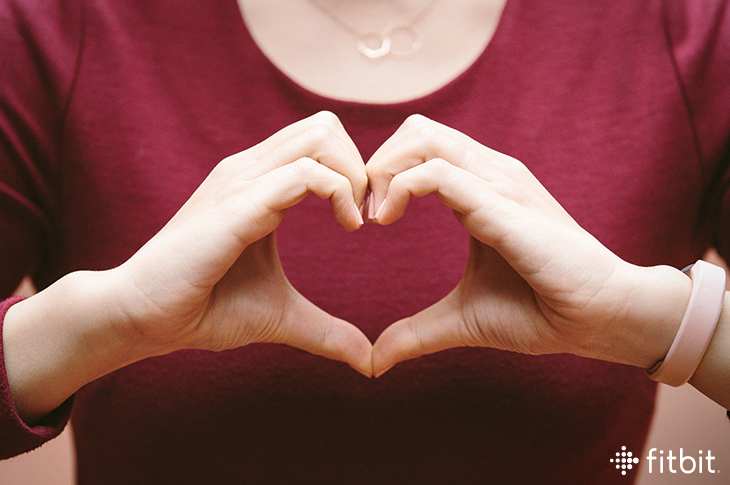
You’re at work. The deadline is approaching. Your boss just emailed. Your colleague says she hasn’t put the data report together yet. You can feel your heart rate rising. Thump-thump, thump-thump…
For some people, this is a normal day—constantly under the gun and taxing your heart health. “When you’re under stress, your blood pressure is rising, and your cortisol level is going up,” says Ken Yeager, PhD, a psychologist at The Ohio State University Wexner Medical Center and director of the Stress, Trauma and Resilience (STAR) Program. “Heightened periods like this, over the long-term, will damage the heart.”
Stress may also trigger the autonomic nervous system, sending your body into perpetual fight-or-flight mode, and slowing the whole body’s healing process. Yeager points to the work of Jan Kiecolt-Glaser, who studies the effects of stress on healing. “In one study, they actually made small punch-hole wounds in the cheek,” explains Yeager. “Those under the most stress healed slower than other test subjects. Stress slows down the healing process. If you sustain that damage to the heart, it does not heal. It leads to issues like metabolic syndrome—which is obesity, cardiovascular disease, type-2 diabetes,” says Yeager.
Too much stress may overwork your heart, so it’s important to monitor how hard (and how long) you work without taking a break. And to take into account the tactics you use for stress reduction—which may not always be heart-healthy. Here are a few ways to effectively counter anxiety and break bad heart habits.
Keep Healthy Snacks in Arm’s Reach
A funny thing happened to Yeager when he was in college. “I used to keep Cheetos around, and I realized that my keyboard was turning orange while I was working,” he says. “People overcompensate in their ways. Some, like me, are stress-eaters.” General health is tied with mental health, so you need to keep both in check; if you’re in a high-stress environment, take away negative stress-relievers, like processed snacks—which, many experts believe, are gateways to conditions like heart disease. Instead, keep fruit, veggies, peanut butter, vegetable-based smoothies, nuts, and other smart snacks on hand.
Embrace Comedic Relief
“Laughter is key,” says Yeager, pointing to the work of Herbert Benson, who spent 50 years researching the power of relaxation to bring down disease biomarkers. “If you can’t get away from your desk, look at those pictures of baby animals. Look at those silly YouTube videos. These are actually helping you reduce stress,” says Yeager. The hormone oxytocin is released, which is the body’s counterpoint to the stress-hormone cortisol.
Take a Walk During the Workday
People under stress often overcompensate by working harder, says Yeager—something researcher and endocrinologist Hans Selye coined “General Adaptation Syndrome.” The only problem with that tendency is stress builds and builds to a state of exhaustion, which may leave you more at risk for issues like hypertension and heart attack. That’s why getting out and walking is huge, says Yeager. “If you’re stressed, walking can help you clear your mind and you may begin to see reductions in blood pressure and heart rate,” he says. You’ll also be racking up the steps—remember, 10,000 a day is the goal.
Meditate Before Bed
Stressed-out people often have a hard time sleeping, notes Yeager. “Finding balance in life is protective for your heart,” he says. “It’s like a three-legged stool. If one leg breaks, then it all falls down. People who are working too much, sleep too little. ” Get yourself into a semi-dark room, says Yeager, and disengage from devices that emit blue light (things like smartphones, computers, TVs, and more). Breathe slowly for five minutes, with three-second inhales and three-second exhales. Clear your mind—and then go about your nightly ritual, getting ready for bed as you normally would. When you climb underneath the covers, do your five-minute meditation again. Yeager uses his Fitbit tracker to track his personal sleep trends, and says meditating has helped his sleep efficiency to skyrocket.
How do you manage stress? Join the conversation below.
This information is for educational purposes only and is not intended as a substitute for medical diagnosis or treatment. You should not use this information to diagnose or treat a health problem or condition. Always check with your doctor before changing your diet, altering your sleep habits, taking supplements, or starting a new fitness routine.

What happens if u don’t like veggies and already have PTSD and metabolic syndrome. Are u doomed for heart failure?
Is there any natural vitamin that u can take 4 stress and anxiety?
This is very helpful information. My department director recently restricted anyone from taking a lunch break at their desk. I must admit now that getting away for an hour has been great for me. My daily steps have increased and I’m more productive for the remainder of the day.
Will definitely try this at work.
I love my fitbit to bits but have no frame of reference for quality of sleep or my quality of sleep. What is does a ‘normal’ sleep patterns look like.
The hours are 7-9 and you can sleep hard, light, etc
I am 79 years old from Mumbai – India. I do walking of 10000 steps every days since last four months. Is this walking going to weaken my knee joints? what extra care i have to take about my knees. I walk about 1000 steps in ten minutes. I tried jogging but could not do it and ran out of breadth.
Great article that compliment Fit Bit users and add to our overall health awareness and tips for improving physical and mental health. Kee em coming.
Very helpful commentary especially the laughter component. I will surely seek out some comedy for my desk top, I sit at it far too long on the job.
What should we do more often to lower systolic blood pressure if working in stressful environment which has deadlines every alternative days?
Gteat article! Thank you for sharing. I usually average 22,500 steps at least 4 x a week and the other days 12,000 steps. I have not seen any weight loss yet. My diet is good. What can be the issue? Thanks
Can this kind of behavior lead to high blood pressure? I try to explain to my doctor that my high blood pressure is from stress of work and just the outside world since I live in a very congested city but it seems to fall on deaf ears. I notice a huge difference when I meditate but not sure if this will help in the long term…
I did not see any answers to any questions. I can not get my fitbit to monitor my sleep. Need more on how to handle stress. Thanks for the comments and the article.
I have Atrial Fibrillation. Will the Fitbit record my heart rate accurately?